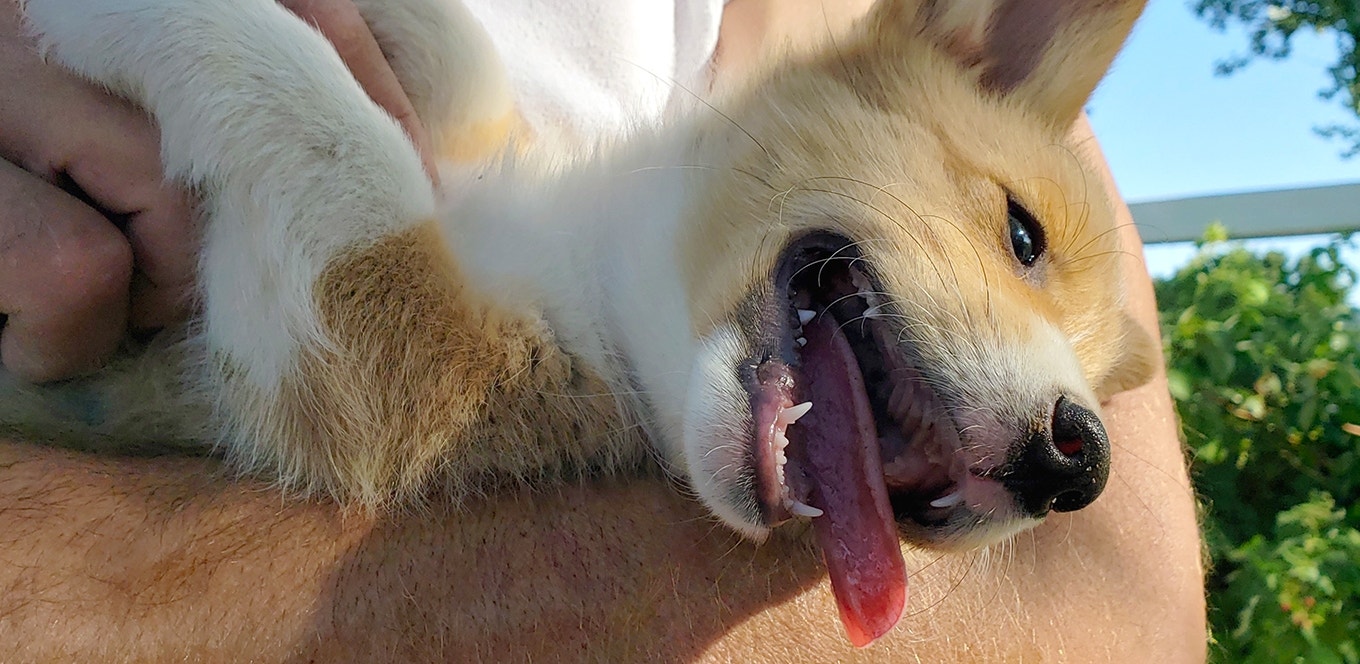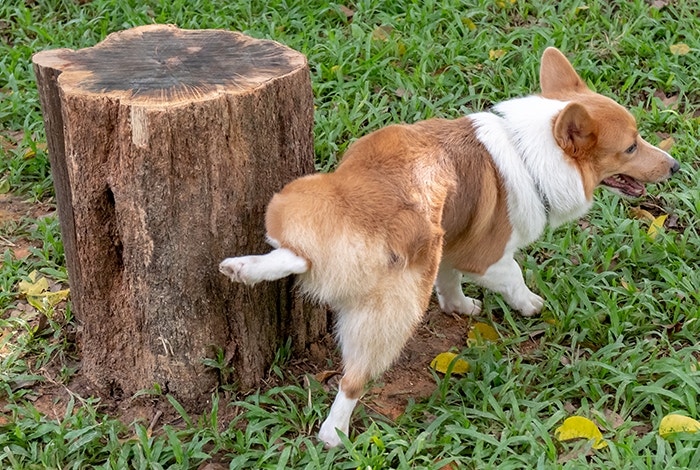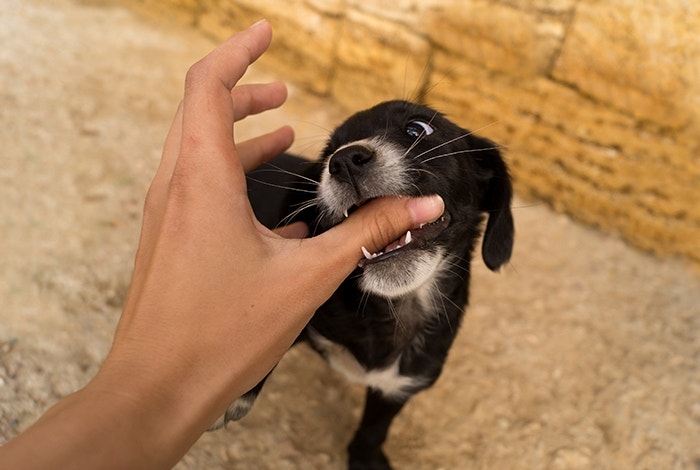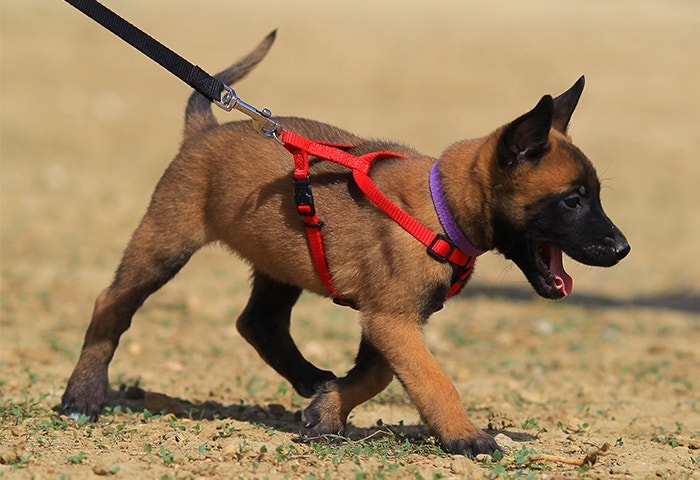

Have you ever spotted your beloved canine companion nibbling on the lush green blades in the backyard and found yourself pondering the reason behind this seemingly peculiar behaviour? This intriguing habit has fascinated pet owners and experts for generations. In this blog, we will explore the various factors that might drive your furry friend to indulge in this grassy feast, unfolding the mystery behind their seemingly strange dietary preferences and habits.
Dogs have been known to display a liking towards occasionally nibbling on grass. While the exact rationale may differ from one dog to another, several theories attempt to shed light on this behaviour, providing explanations for this habit. Understanding the underlying motivations can provide valuable insights into our furry friends’ dietary preferences. Your dog could be eating grass due to various causes, some of which are listed below.
Some dogs simply relish the taste and texture of grass, which might be due to the change in taste, texture, or smell during different seasons. For them, indulging in a bit of greenery might be akin to us savouring a favourite snack. It may not necessarily serve any particular purpose other than fulfilling a canine craving for something different and intriguing, making it a harmless pastime that satisfies their curious taste buds and offers them a brief moment of sensory delight amid their daily routines.
In certain instances, dogs may resort to grass as a means of alleviating boredom and seeking sensory stimulation. Particularly for those lacking sufficient mental or physical engagement, exploring the various textures and tastes of the outdoors can serve as a form of entertainment, helping to pass the time and provide a temporary distraction from their otherwise monotonous routines. This act of grazing on grass could serve as a form of mental enrichment, offering them a much-needed change of pace and an opportunity to engage their senses.
Dogs, like humans, require a certain amount of fibre in their diets to maintain a healthy digestive system. Since grass is a natural source of fibre, sometimes dogs can eat grass instinctively to aid in digestion, especially if their regular diet lacks adequate fibre content. This act of consuming grass could potentially help them regulate their digestive processes, promoting better overall gut health and ensuring smooth bowel movements, contributing to their overall well-being and physical comfort.
Surprisingly, grass contains certain properties that could aid dogs in purging their system of any potentially harmful intestinal parasites. By inducing vomiting through grass consumption, dogs might instinctively attempt to cleanse their digestive tract, ridding themselves of any unwelcome parasites that could be causing discomfort or distress. This natural mechanism could be a part of their innate self-care routine, serving as a means of maintaining their overall health and well-being while safeguarding them from potential health risks posed by internal parasites.
Keeping a close eye on your dog's grass-eating habits is essential for understanding their overall well-being. Despite common assumptions, the act of consuming grass does not necessarily indicate an underlying illness, with reports suggesting that only about 10% of dogs appear to be unwell before indulging in grass. This emphasises the importance of paying attention to other cues to gauge your pet's health accurately and understand if grass is good for dogs.
Furthermore, it is worth noting that most dogs, approximately 25%, who consume grass do not end up vomiting regularly after grazing. This challenges the conventional notion that grass consumption leads to subsequent vomiting. Some experts propose that this behaviour might aid in digestion or cater to specific nutritional requirements, such as the need for additional dietary fibre, indicating a potentially intuitive dietary mechanism in canines.
However, as mentioned previously, it is plausible that your dog simply relishes the taste or texture of grass, viewing it as a form of sensory stimulation. By closely observing your dog's grass-eating patterns and any accompanying behaviours, you can discern whether this habit is a matter of preference or indicative of underlying health issues that require attention. This vigilance allows for a comprehensive understanding of your pet's dietary preferences and potential nutritional needs.
If you suspect your dog is eating grass out of boredom, it is crucial to ensure it is getting sufficient exercise and mental stimulation. Consider incorporating engaging activities into its routine, such as playing interactive games like fetch or providing it with durable chew toys to keep it occupied and mentally stimulated.
In cases where your dog's grass-eating behaviour stems from a potential nutritional deficiency, transitioning to a higher-quality dog food, particularly one rich in dietary fibre, could help address the underlying issue. Consulting with a veterinarian to determine the most suitable dietary adjustments for your dog is advisable to ensure it receives the necessary nutrients.
While most experts agree that grass consumption itself isn't harmful, it's important to remain mindful of potential hazards. Some lawn treatments, including herbicides and pesticides, can be toxic if ingested. Similarly, several common household and garden plants are toxic to dogs, leading to health complications if consumed alongside grass. Being vigilant about the types of plants and substances your dog has access to will significantly mitigate potential risks associated with their grass-eating behaviour.
Yes, it can be normal. Some dogs eat grass occasionally as a natural behaviour, but excessive consumption might indicate a need for dietary or behavioural adjustments.
Not necessarily. If it's occasional and doesn't cause harm, it might be fine. However, if it's excessive or leads to vomiting or other issues, consult a vet.
Monitor for any unusual behaviour or digestive issues. If it continues or causes problems, consult a vet to rule out underlying health issues.
Provide a well-balanced diet and ensure enough physical and mental stimulation. Redirect their focus with toys or activities and consult a vet if the behaviour persists.
Dogs may eat grass due to various reasons, such as dietary deficiencies, upset stomachs, natural behaviour, or simply because they enjoy the taste or texture. If it becomes frequent, consulting a vet can help identify any underlying issues.

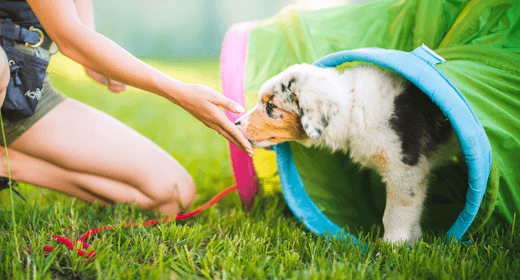
Congrats! Your adorable li’l bundle of fur is finally home. Now it’s time to train your pup like a pro with our essential puppy training techniques and tips for three important topics:
Most experts suggest potting training a puppy when they’re between 12 and 16 weeks old.
Before you begin, though, set your puppy up for success by giving them a confined space in your house, whether that’s in a crate, a small room with a baby gate or on a tethered leash, so you can keep an eye on them and prevent accidents.
Most puppies need to eat three to four times a day, so feed your furry friend delicious, specially formulated IAMS™ Puppy Food at the same times every day. The food is easy to digest and will help keep your puppy’s potty breaks on a fairly predictable schedule, which is a win-win for both of you.
We recommend every hour or two at first, depending on your pup’s breed and size. Also take them out right after they wake up in the morning or from a nap, after they eat or drink and after play sessions.
Removing access to water two hours before bed time and scheduling a bathroom break right before bed will help your li’l baby sleep through the night. Most puppies can sleep about seven hours without having to go. But if your puppy does need to go out, be low-key about it. Take them outside, allow them to go and put them right back in their sleeping space.
By taking your puppy on a leash to the same spot every time, you’re saying to them, “This is where you do your business.” The scent in this spot will encourage them to go. Also, use a consistent phrase like “go potty” as your puppy does their business. Eventually, that’s all you’ll have to say to prompt them.
We recommend using a leash so your puppy knows exactly where they need to go and doesn’t get distracted on the way — which, of course, is what puppies do.
Give your little pooch lots of praise after they do their business so they learn your expectations. You can also give them a treat, but do it immediately after they go so they associate the treat with the behavior. Going for a walk around the neighborhood is another great way to reward them.
While playing with your puppy is fun for both of you, it’s important to teach your puppy that they aren’t allowed to nip at your clothing or bite your skin. Here’s how to do it:
A great technique to nip puppy nipping is to say “ow!” in a loud, high-pitched voice. This gets your puppy’s attention because it mimics the yelp a mother dog and littermates use to say, “Hey, you just hurt me.”
Every time your puppy nips or bites you while playing — or any other time for that matter — gently remove yourself from their grip, quietly turn around and walk away. This says to your little guy or girl that biting is not an OK way to play.
If your puppy keeps biting after you say “ow!” or walk away and ignore them, they might be overstimulated or overtired. If so, gently put your puppy in their crate or room for a little while so they can calm down or sleep.
If you don’t want your hands, fingers and toes to be chew toys, then always have a puppy chew toy handy. This distracts them from the biting behavior and teaches them what’s acceptable to chew on, especially when they’re teething and gnawing to make their gums feel better.
A tuckered-out pup has less energy to nip and bite, so give them the right amount of physical activity and playtime every day. See how much exercise our experts recommend.
Whenever your little friend plays politely and doesn’t bite you or others, don’t forget to praise them, give tons of affection or perhaps offer a tasty treat.
No doubt about it: One of the most important things you can do as a new puppy parent is teach your dog how to go on a well-behaved walk with you on a leash. Here’s how to get started:
Start inside your house by putting on your pup’s collar or harness for short periods when you’re playing with them and giving them treats, like pieces of tasty IAMS™ kibble. After your puppy is comfortable with their collar or harness, attach the leash and let them drag it around
Start with simple walks around your house. Teach your puppy to walk next to you with a loose leash, praising and encouraging them with small pieces of dry dog food.
As your pup gets the hang of indoor walking, it’s time to take your leash training outdoors, preferably in your backyard if you have one. Keep your puppy focused during each brief session and encourage them to stay right next to you without pulling, lunging or stopping while they’re on the leash.
Now’s the time to put your training into action. Start out with a short walk and work hard to keep your pup close by your side. You’ll also need to keep them focused because they’ll be distracted by all the new sights, sounds and smells. Be patient, keep your pace slow and give them plenty of chances to sniff around and do their business.
Practice really does make perfect. So keep praising and giving your little friend occasional treats until they learn the leash-training routine and become a well-mannered walking partner for life.
